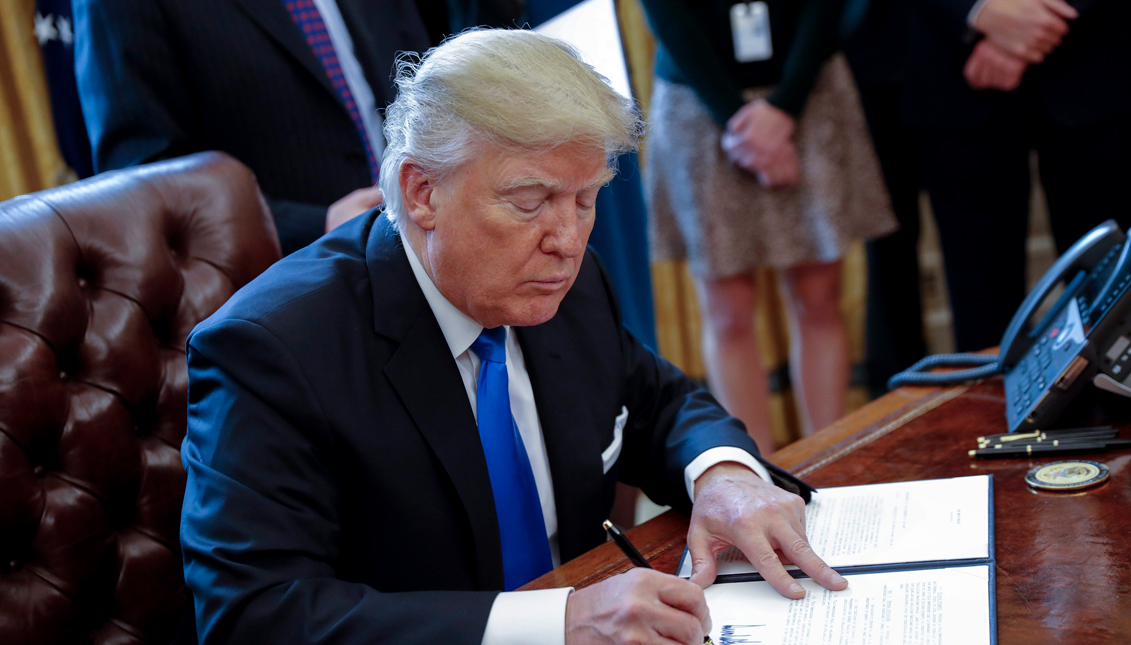
[OP-ED]: Patriotism on steroids: Trump’s isolationism
The question that swirls around Donald Trump’s inaugural address is whether his aggressively pronounced policy of America First will actually result in America Last -
MORE IN THIS SECTION
The question that swirls around Donald Trump’s inaugural address is whether his aggressively pronounced policy of America First will actually result in America Last -- not literally last, but declining in power and prestige because the United States no longer views its role in the world as promoting economic and geopolitical stability for our allies.
Instead, he imagines a world in which America takes what it can and worries about others only as an afterthought. What does he expect other countries to do? The answer is obvious. They will act more aggressively in their own selfish interests, leading to a further disintegration of post-World War II economic and political alliances.
It is not that all countries, including the United States, haven’t always acted in their own interests. But, for decades, they and we have identified self-interest with collective commitments to global commerce and military cooperation. If the leader of these arrangements -- the United States -- now forsakes them, other countries will look to make new economic and security arrangements, with China and Russia as leading alternatives.
This breakdown threatens the greater American prosperity that Trump promises. A changing world economic order will generate enormous uncertainty, as other countries rush to protect their markets from competitors. Companies may reduce investment spending, which is already weak. Slower economic growth, or outright recessions, will make it harder for governments and companies to service their high debts. This would further darken prospects for the global economy.
In the short run, the president’s speech -- and the policies that would flow from it -- may be a crowd-pleaser. It’s patriotism on steroids: America’s economic problems are caused largely by foreigners, aided by footloose U.S. multinationals. They have taken our jobs, flooded the country with immigrants, and cost us trillions of dollars in overseas military spending.
It is comforting to think that our most serious economic problems stem from our being too generous -- or not tough enough -- with foreigners. It exonerates us from most responsibility for our own faults and dictates that the remedy of being too soft is to be more hard-nosed. Simple.
But it is a complete delusion and, therefore, is dangerous because it causes us to misunderstand our own predicament. In truth, most of our serious economic problems are homegrown.
Consider. Chicago’s high murder rate is not the result of Chinese imports. The often-dreary performance of our schools for minority students is not a consequence of a strong dollar on foreign exchange markets. The 2008-09 financial crisis did not have foreign roots. (The proximate causes were financial speculation and an overheated housing market.) America’s budget deficits aren’t caused by Russia’s warmongering.
Economic nationalism is a powerful potion, made more powerful by the president’s overwrought rhetoric. “We’ve made other countries rich, while the wealth, strength and confidence of our country has dissipated over the horizon,” he complains. It’s true that open trade, championed by the United States, created a framework conducive to other countries’ success, but mostly they created their own wealth.
This does not mean that some of our economic problems don’t originate abroad, that illegal immigration isn’t serious or that unfair trade practices, intellectual espionage, and distorted exchange rates should be ignored. But they are second-order problems, not the crux of our difficulties, as Trump portrays.
Trump’s inaugural declaration (which mirrored much of what he said in the campaign) is a historic milestone, but not in the way Trump believes. It’s a formula for America’s decline on the world stage and runs enormous risks of destabilizing the global economy. For the first time since World War II, an American president has made isolationism the political centerpiece of his administration.
It is possible that, in practice, Trump’s policies will be more moderate and more in line with the traditional policies of previous presidents, Democratic and Republican. Some of his Cabinet selections, in their confirmation hearings, have sounded much more conventional than their boss.
Still, this illuminates the dilemma Trump has created for himself. The full implications of what he’s proposed, if implemented, would be disastrous. But if he retreats significantly, he may alienate many of his fervent followers, who will feel rightly that they’ve been betrayed.







LEAVE A COMMENT:
Join the discussion! Leave a comment.